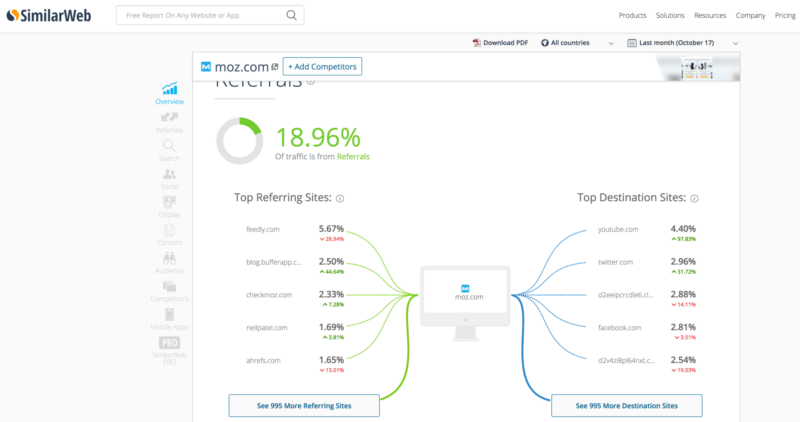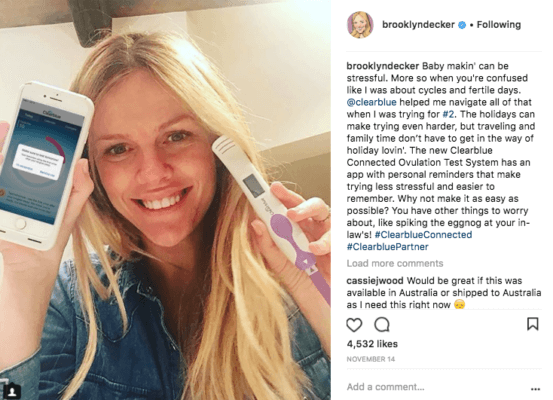Links are a crucial element of search engine optimization, and columnist Kevin Rowe believes that long-term SEO success relies on building links that drive real traffic.
Many people see link building as a way to drive rankings. But, when done correctly, it can (and should) also drive traffic.
Driving traffic has a lot of benefits beyond the obvious potential increase in leads and sales. More website traffic can provide valuable analytics data about what users are looking for and what confuses them. It can also help grow engagement and potentially referral links on social media as others begin to share our content.
In this column, I’ll explain how to identify sources of links that drive actual traffic and how to evaluate your progress so that you can focus your efforts where they will have the greatest impact.
Identifying link partners
In order to find good sources for traffic-driving links, there are a few ways you can go: competitor research, rankings and influencers.
First, find the publications driving traffic to your competitors by using tools like SimilarWeb to find their top referral sources. Not only do these tools tell you who is linking to your competitors, but some can also show how much traffic your competitors are getting from those links.

Any site driving traffic/referrals to your competitors should be investigated and evaluated as a potential linking partner. Check each one for quality, verifying that they aren’t content scraper sites and are actually valuable resources for your target audience. If they pass the test, then consider approaching them for a link.
Of course, you shouldn’t just pursue links from sites that are driving traffic to your competitors. Review the top-ranking websites in Google for the terms you want to rank for and see if any of them can serve as good linking partners. For example, many industries have vertical-specific directories that provide both free and sponsored listings.
As always, do your research when approaching sites like this. Do the directories seem spammy, designed only to generate links for SEO purposes? Or are they legitimate sites that consumers actually use, like Yelp, TripAdvisor or Avvo? (Note that links from legitimate sites will often be nofollowed, but they are still valuable because they drive real traffic.)
If you want to do more of the heavy lifting when it comes to content, try approaching major and niche industry outlets that you can contribute content to. In addition to the above sites you found during your research, use a tool like BuzzSumo to find social influencers and reach out to them on their social channels or via email to see if they accept guest posts. These posts need to be highly relevant to the website’s audience, and be careful to follow any editorial guidelines and respect their rules for submitted content.
In addition to smaller industry publications, you can also find guest posting opportunities on major sites like Inc.com through their guest posting forms. The byline link or the author page can be a great source of traffic and referrals. Often, I’ve gotten leads from these links just because the prospect was impressed with seeing the byline in major outlets. However, you must be diligent and careful here: Submit your best work, as inclusion is often competitive, and editors can therefore be extremely choosy.
Other great outlet options to consider are community forums, like industry-specific subreddits or sites like Inbound.org if you are in marketing. Just remember to be a good community member — never spam other users with your own content, and be sure to participate regularly by answering questions and commenting thoughtfully on others’ content.
One last angle to try is to find industry influencers and sponsor or partner with them. Many influencers are willing to enter into partnerships with brands, where they will review or work with a company on content and social media posts to get the brand’s name out to their audience. Cost usually varies with audience size and the scope of the campaign.

Since the aim here is to drive traffic and branding, you shouldn’t run into any issues regarding Google’s linking guidelines. However, it’s important to ensure that all financial relationships are disclosed according to FTC guidelines and that you aren’t attempting to hide or sneak links into any content that you are sending to these outlets for publication.
Evaluating success
Once you’ve approached your chosen link partners and successfully obtained links, it’s time to review your work. After each month, check Google Analytics for referral traffic to see which new sites you’ve worked with are actually bringing you traffic. After three to six months, you’ll have a clear picture of which sites are worth your time and which aren’t. For instance, if Inc.com is bringing you more traffic than three industry sites combined, it might be better to pare down your industry sites to be able to submit more content to Inc.com.
Additionally, you can also see if there is an increase in overall brand search for your name using Google trends or Google Keyword Planner. Often, branding campaigns can result in more direct traffic, as well as organic traffic due to an increase in branded searches. By carefully tracking increases in direct and branded organic referrals, you can see the impact your branding campaigns are having. This can help you see the long-term benefits of your link-building efforts in growing your website traffic.
While tracking the data, be sure to also track your success building relationships with the influencers and websites you’ve singled out as potential link-building partners. This can show your progress to management and help you hone your pitch and messaging style.
Final thoughts
Link building, no matter the goal, is hard work if you want it to be done ethically and with enduring value. Building a healthy link portfolio can help you generate traffic from a wide variety of referral sources, while also increasing your overall online presence and making sure you own more of your branded search terms. Be sure to cast a wide net by working with many different sites and platforms.
Rosy Strategies, a South Florida based company, was founded on the belief that integrated marketing strategies are needed in today’s pulsing market. Many companies do a little bit of this and a little bit of that without truly evaluating their performance/ROI. Rosy Strategies goes through the planning process with you to establish a clear direction and unified purpose for all your marketing efforts.










